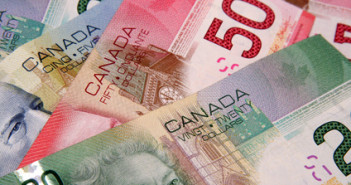Canadian Consumer Price Index (CPI) dropped by 0.2%. It was expected to remain flat in April after rising 0.2% in March. Year over year, inflation stands at only 0.4%, lower than 0.6% expected. Core CPI, which is more important from the central bank, also fell short of expectations by rising by only 0.1%. It was expected to rise by 0.2% after last month’s 0.2% rise. Y/Y, core CPI stands at 1.1%. Wholesales Sales rose by 0.3%, marginally lower than a rise of 0.4% that was predicted for the month of  March after remaining flat in February. These figures will keep the Bank of Canada on hold for a long time. Hikes will wait for a distant point in the future.
USD/CAD was trading around 1.0280 before the publication, rising sharply from a trading range of 1.0150-1.02 seen beforehand. The pair now broke above the 1.03 line.
The Canadian dollar has weakened against the US dollar, but not as much as other currencies, such as the Australian dollar, which collapsed.
Also the US printed very weak inflation numbers, 1.1% on an annual basis. However, Canada, with only 0.4%, is on the verge of deflation. Will the Canadian government adopt any kind of “Abenomics†to fight deflation? This isn’t probable. However, a rate cut by the central bank cannot be ruled out.
For more, here is the USDCAD forecast and a live chart of the pair:
new TradingView.widget({
“width”: 610,
“height”: 400,
“symbol”: “FX:USDCAD”,
“interval”: “30”,
“toolbar_bg”: “#E4E8EB”,
“hide_side_toolbar”: false,
“allow_symbol_change”: true
});
There is still one significant publication left this week in the US: consumer sentiment by the University of Michigan.



